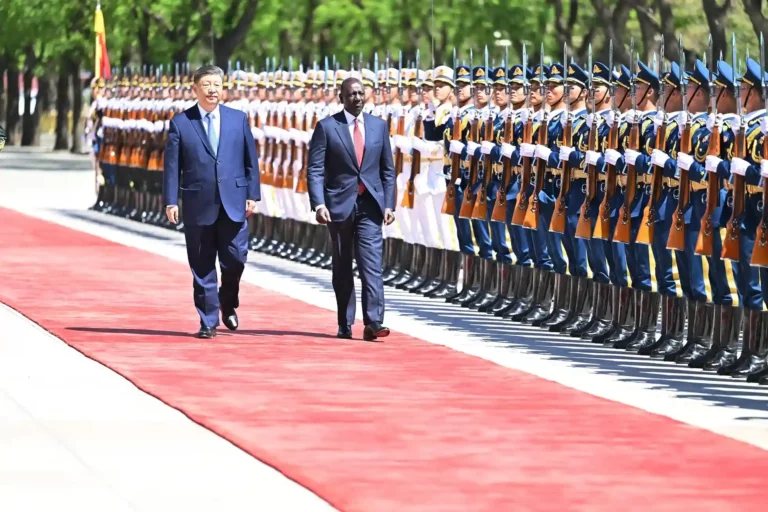China and Kenya announced on Thursday they had elevated their bilateral ties to a “new level” during a meeting between President Xi Jinping and Kenyan President William Ruto in Beijing.
In a joint China-Kenya statement, both leaders said they were “committed to injecting more stability into the world with the certainty of China-Africa solidarity and cooperation.”
In the statement, China affirmed its commitment to supporting Chinese financial institutions in establishing branches in Kenya, recognising the nation’s role as a financial hub within East Africa.
This strategic move aims to cultivate novel and diverse avenues for financial cooperation between the two countries.
Furthermore, “China is ready to explore cooperation with Kenya on panda bonds in compliance with market rules and relevant laws and regulations,” reads part of the joint statement, ensuring strict adherence to prevailing market regulations and relevant legal frameworks.
What are Panda Bonds?
Panda bonds are Yuan (RMB) denominated bonds issued in China’s domestic market by entities based outside mainland China, including offshore Chinese firms, foreign corporations, financial institutions, and sovereign entities.
Introduced in 2005 by the Asian Development Bank (ADB) and the International Finance Corporation (IFC), the panda bond market has grown steadily, becoming a key tool for international financial integration.
This potential cooperation aligns with broader initiatives to deepen the robust economic and trade relationship, encompassing infrastructure development and the facilitation of increased investment between China and Kenya.




